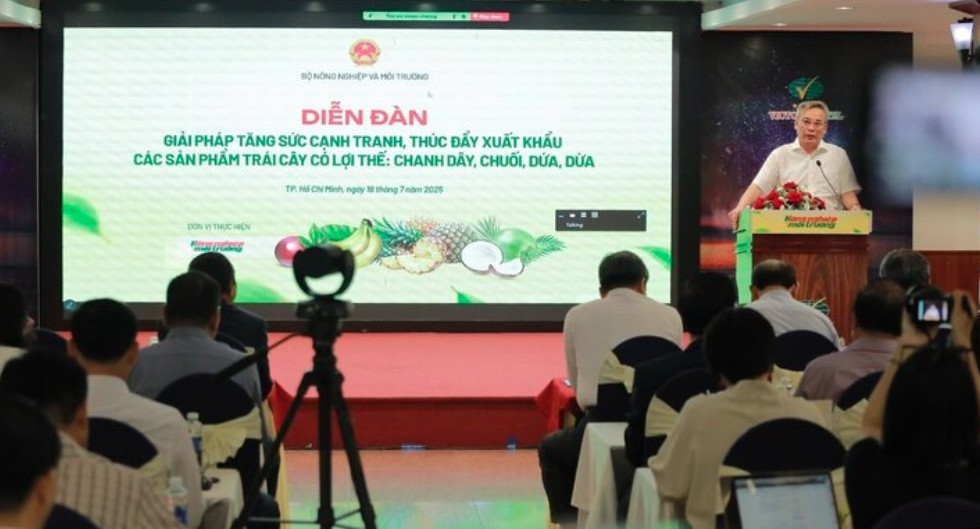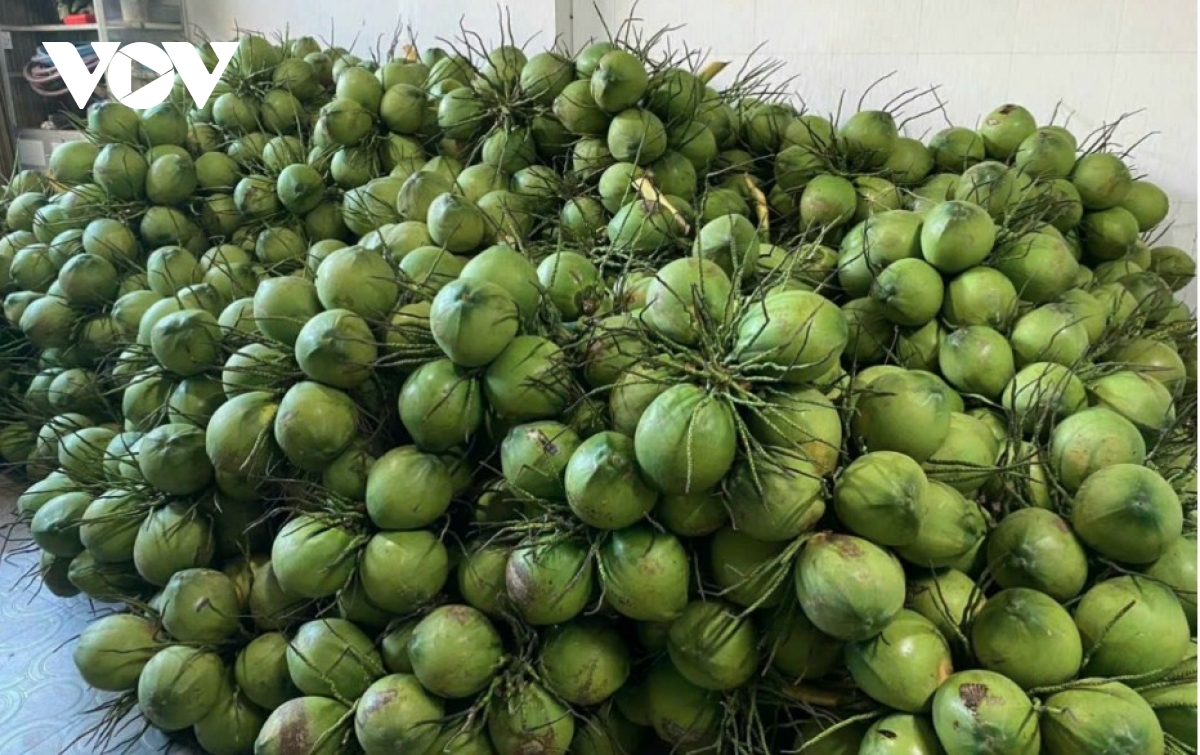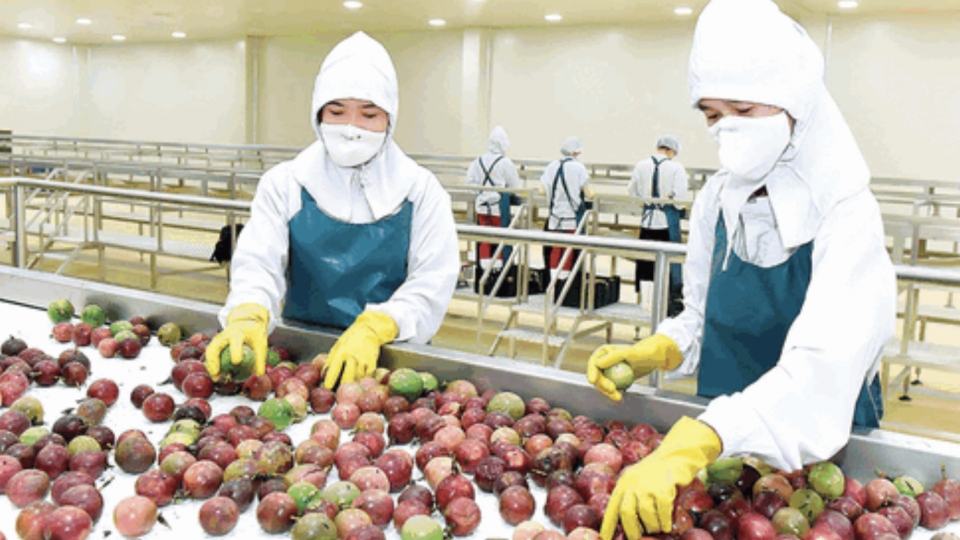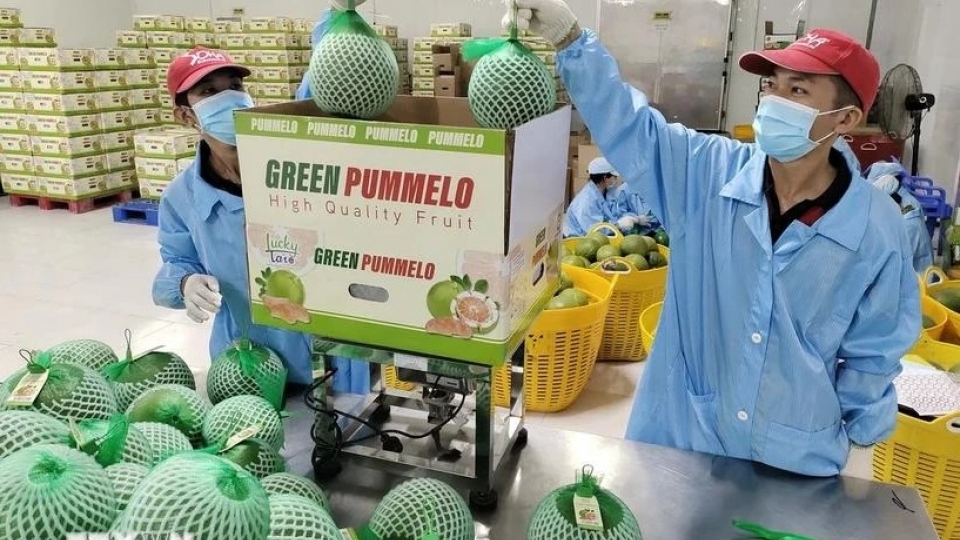Solutions proposed to expand export markets for major Vietnamese fruits
VOV.VN - Passion fruit, banana, pineapple, and coconut are emerging as fruit categories with strong potential to reach US$1 billion in export value, contributing to a more diversified structure within Vietnam’s fruit and vegetable sector.

At a forum on enhancing competitiveness and boosting exports of key fruit products, including passion fruit, banana, pineapple, and coconut, held on the morning of July 18 in Ho Chi Minh City by the Ministry of Agriculture and Environment, experts proposed a number of solutions to better leverage the export potential of these key fruit products.
Four major fruits show high growth potential
According to the Ministry, Vietnam currently has around 1.3 million hectares of fruit cultivation, producing an estimated 15 million tons annually across more than 50 fruit varieties grown nationwide.
So far, only durian has surpassed the US$1 billion export threshold, reaching US$2.3 billion in 2023 and US$3.3 billion in 2024. Dragon fruit, which previously topped US$1 billion, has fallen significantly, with export earnings down to just US$534 million this year.
Against this backdrop, passion fruit, banana, pineapple, and coconut are expected to become Vietnam’s next strategic export crops. These fruits not only offer strong production capacity but also align with growing global consumption trends and increasingly stringent quality standards.
The country’s banana-growing area currently covers about 161,000 hectares, generating nearly US$380 million in export value and placing the country among the world’s top nine banana exporters. Vietnamese bananas are now present in markets such as China, the Republic of Korea (RoK), Japan, the EU, and the United States. Pineapples are grown on over 52,000 hectares, coconuts on nearly 202,000 hectares, and passion fruit on more than 12,000 hectares, with all four crops seeing expansion in both cultivation and deep-processing capacity.
At the forum, Ngo Quoc Tuan, Deputy Director of the Plant Quarantine Center II, noted that negotiating market access for fresh fruits is often time-consuming and complex, primarily due to requirements related to plant quarantine and food safety.
Although each country has its own procedures, most follow basic steps in line with international standards and the WTO’s SPS Agreement. The ultimate goal is to ensure official, traceable exports that fully meet the importing country’s technical standards.
While reaffirming the export potential of coconut, pineapple, passion fruit, and banana, Dr. Tuan warned that more countries are imposing stringent technical requirements, especially regarding plant quarantine, food safety, and traceability for imported agricultural products.

He cited recent violations involving plant quarantine and food safety regulations, which prompted China’s General Administration of Customs (GACC) to revoke certain planting area and packaging facility codes for durian and jackfruit, thus disrupting trade.
For markets in South America, challenges include long shipping distances and preservation issues, while competitors such as Peru, Ecuador, Mexico, Colombia, and Costa Rica enjoy advantages due to proximity and similar product offerings.
In ASEAN markets, although geographic proximity and lower quarantine barriers are advantages, competition is still intense due to similar climates and overlapping fruit varieties, making it difficult to compete with domestic products.
Stronger communication and traceability needed to boost fruit exports
Nguyen Nhu Cuong, Deputy Head of the Department of Science and Technology under the Ministry of Agriculture and Environment, emphasized the need for Vietnam to proactively expand into new markets and adopt diverse post-harvest treatment technologies, such as irradiation and hot water treatment, while also strictly managing planting area codes to build trust with international partners.
Regarding the coconut industry, Tran Le Hoa, Deputy Head of Social Sciences Department at the Vietnam Coconut Association, highlighted the importance of using GIS technology in planting area management to improve transparency and traceability, meeting global standards. She also stressed the need for stronger communication strategies: Vietnam should invest in digital media tools to promote its products and develop a national-level communication plan tailored to key export markets.
The Ministry of Agriculture and Environment stressed that to enhance competitiveness, the fruit sector must accelerate restructuring and upgrade the value chain toward a greener, more modern agricultural model.
Priorities include developing raw material zones in conformity with planning, building partnerships with processing and distribution enterprises, applying advanced technologies to reduce production costs, modernizing processing and logistics infrastructure, and strengthening branding and trade promotion efforts to expand formal export channels.
The Ministry also underlined the importance of reorganizing supply chains and enhancing the role of cooperatives and lead enterprises to improve the sector’s sustainability. Continued negotiations for market access of key fruits such as passion fruit, banana, pineapple, and coconut remain a central task to diversify export markets and reduce overreliance on traditional destinations.




